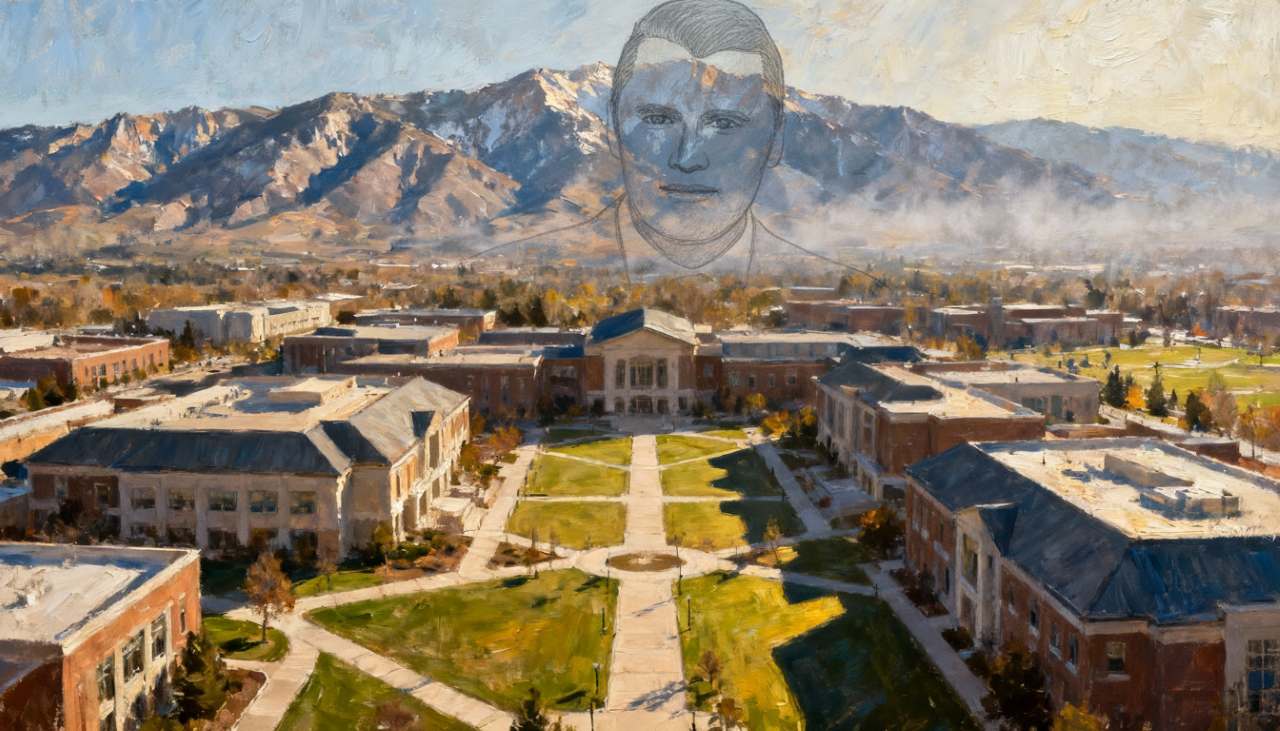
Charlie Kirk, the 31‑year‑old conservative firebrand and co‑founder of Turning Point USA, was assassinated on Wednesday while hosting one of his signature “Prove Me Wrong” debates at Utah Valley University.
A Public Execution in Real Time
According to eyewitness footage verified by the Associated Press, Kirk was in mid‑argument when a single shot tore into his neck, sending him collapsing as panicked students scrambled for cover.
Unlike the era of smoke‑filled newsrooms or delayed wire service reports, this was a public tragedy lived in real time, recorded on multiple phones and uploaded within seconds. Students first thought it was a prank—confetti, maybe—but the sight of blood silenced that thought instantly.
Confusion and a Manhunt
The initial chaos was compounded by conflicting police statements. Utah Valley University first claimed a suspect had been detained, but later confirmed the wrong person was taken in. As of late Wednesday evening, the actual shooter remains at large.
That uncertainty hardened the atmosphere nationwide. President Trump, who himself survived an assassination attempt last year, announced Kirk’s death on Truth Social and ordered flags to half‑staff until Sunday. Vice President JD Vance, visibly shaken, called Kirk a “good guy and a young father”.
A Generation’s Firebrand
Kirk was no ordinary political operative. He founded Turning Point USA at just 18 years old, and by force of charisma and relentless media savvy, built it into one of the most influential conservative youth organizations in the country, present on 3,500 campuses. His debates, often antagonistic, were equal parts political theater and recruitment tool. Wednesday’s was typical until it ended in fatal violence.
Kirk delighted in confrontation. Clips from his exchanges regularly went viral, cementing him as a “youth whisperer” for Trump’s movement. To his critics, he represented a politics of provocation; to his allies, he embodied the boldness conservatives lacked on campuses.
A Pattern of Political Violence
Kirk’s killing now joins a grim roll call. A Minnesota state lawmaker and her husband assassinated in June. A Colorado parade firebombed. Pennsylvania’s governor’s home set ablaze. And, most memorably, Trump grazed by a bullet in Pennsylvania just last year.
The question almost no one wants to say out loud: Are we normalizing political murder?
What Comes Next
Already, lawmakers across the spectrum are framing this moment as a test of America’s unraveling political culture. Speaker Mike Johnson denounced “detestable” violence, while California Gov. Gavin Newsom called it “disgusting and vile.” Even Nancy Pelosi, whose husband nearly died in a politically motivated attack, weighed in with pleas for Americans to reject violence.
But words won’t be enough. The assassination of Charlie Kirk is not just the death of one man or an influential activist. It is a strike at the heart of civic discourse. College campuses—where argument and protest are supposed to sharpen democracy—have now become theaters for executions carried out in daylight.
The assassin’s motive, still unclear, will shape how this story is politicized. Conservatives will argue it was the predictable end of unchecked hostility toward campus right‑wing voices. Progressives will fear it fuels further radicalization. Either way, the reaction risks becoming as polarizing as the man himself.
For now, all the cameras, all the phones, and all the headlines converge on one chilling fact: America’s marketplace of ideas increasingly requires armed security. And sometimes, not even that is enough.
